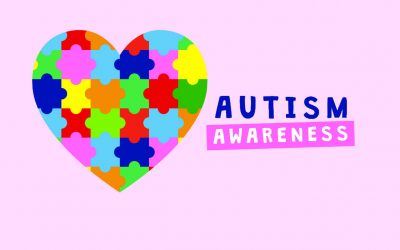When Quackery Kills
By Dr Michael Fitzpatrick
The tragic death of a five-year-old autistic boy in the USA following treatment with mercury chelation reveals the dangers of alternative therapies.
The tragic death of a five-year-old autistic boy in the USA this summer following mercury chelation – a treatment now being promoted by groups of parent activists on both sides of the Atlantic – reveals the dangers of alternative therapies.
Abubakar Tariq Nadama lived with his family – of Nigerian origin – in Batheaston in Devon, England, until his mother took him to Portersville, Pennsylvania, where the Advanced Integrative Medicine Center offers to eliminate mercury from the body through the intravenous injection of the chelating agent EDTA (1). A growing number of campaigners believe that autism is the result of mercury toxicity, caused, at least in part, by the mercury-based preservative thiomersal (thimerosal in the USA) formerly used in childhood vaccines. Many parent activists claim that chelation therapy has produced dramatic improvements in their children. Shortly after his third course of treatment, Abubakar sustained a cardiac arrest and died.
In 2004, the US Institute of Medicine systematically examined – and rejected – claims that vaccines (MMR as well as those containing mercury) may cause autism (2). The US drug regulatory agency, the FDA, approves chelation therapy only for acute mercury poisoning: there is no scientific evidence of its benefits in autism – or any other condition – and little information about its risks (3).
Yet, despite the categorical dismissal of the mercury-autism theory by medical and scientific authorities, the anti-mercury campaign has continued to gather momentum. Earlier this year, David Kirby, a New York journalist, published Evidence of Harm, a book promoting the anti-mercury cause, which has received widespread publicity (4). Defeat Autism Now! – a US-based network of parents and doctors who offer a range of unorthodox treatments (including mercury chelation) – staged a conference in Scotland in October.
Later this month, a conference in Birmingham, England, features a presentation on ‘the risks and benefits of chelation’ by the Dublin-based chelation therapist Dr Gabriel Stewart. This conference is organised by Desumo, one of the companies that profited from the MMR scare by providing single vaccines (though this is not the firm whose proprietor, Dr David Pugh, was subsequently jailed for fraud). (The conference also features a rare UK appearance by Dr Andrew Wakefield, the leading promoter of the MMR-autism link, who now works in private practice in Texas.) It is not clear whether Desumo is planning to diversify into the lucrative chelation business, now that the single vaccine market is shrinking, or is merely providing a platform from which Dr Stewart can advertise his Dublin clinic.
According to his own website, Dr Stewart trained in chelation therapy in Los Angeles, after qualifying as a doctor from University College Galway and working as a GP in Canada for 20 years (5). He returned to set up his ‘Chelation Ireland Clinic’ in November 2000 and he claims ‘huge success with heart disease’ (he believes that 95 per cent of bypass surgery is
unnecessary) (6). He is also ‘seeing the effects of the therapy on other diseases’ such as Alzheimer’s, Parkinson’s, multiple sclerosis and diabetes.
Dr Stewart recommends chelation for ‘stress and fatigue’ and claims that it is ‘the most effective anti-ageing treatment’. Though the title of his Birmingham talk seems to acknowledge that chelation carries risks, these are not specified on his website – unlike the claimed benefits. While Dr Stewart does not indicate what qualifications he has in relation to children or autism, his website declares that he ‘also treats autistic children’.
Though the death of Abubakar Nadama has caused widespread shock throughout the world of autism, it seems not to have deterred the anti-mercury campaigners. In the same angry tones in which campaigners blame the medical establishment for poisoning their children with vaccines, they repudiate their critics in the US media: ‘We are not desperate parents willing to try anything. We are educated, caring parents who have done thousands of hours of research and administered dozens of medical tests on our children under the care of knowledgeable physicians.’ (7)
Parent activists challenge mainstream scientific expertise with the evidence of their own experience and with the results of their own painstaking researches. But both these sources of knowledge may be misleading and relying on them may have damaging consequences for children with autism and their families. The experience of having a child with autism
– as I have – qualifies you to speak authoritatively on your experience as a parent of a child with autism: it does not give you any particular insights into the science of autism. Indeed, one of the problems of being the parent of a child with autism is that it gives you little time or energy to study the wider aspects of the subject. In recent years, however, some parents have devoted much time to reading scientific papers on autism. But, when such parents demand to be heard – and are heard – in scientific controversies it is important that the limitations of parental experience and study are recognised.
+ Full commentary here:
http://www.spiked-online.com/Printable/0000000CAE25.htm


